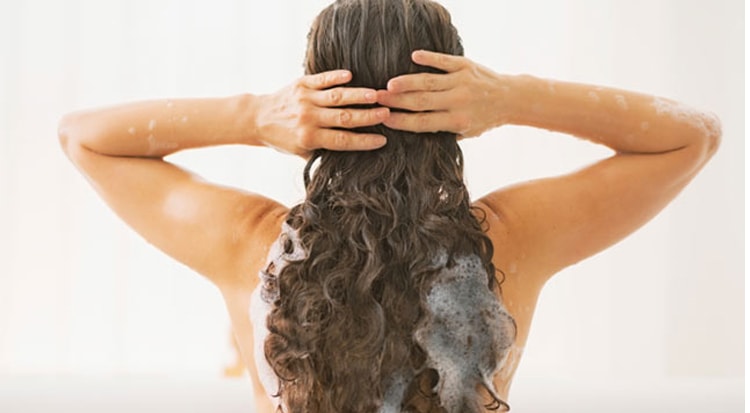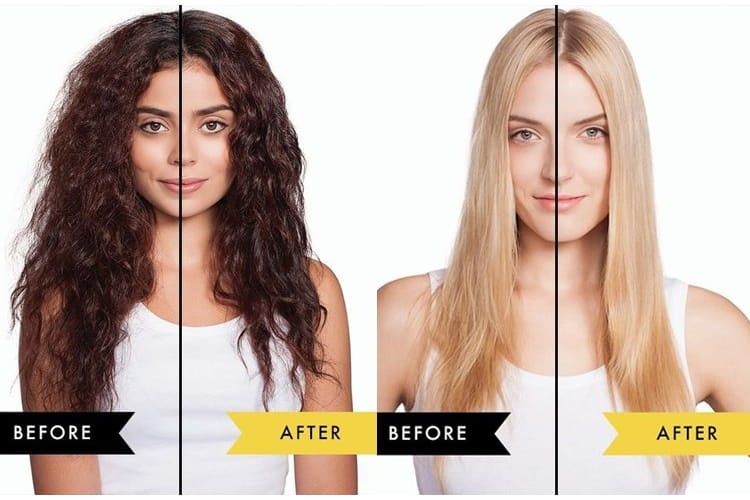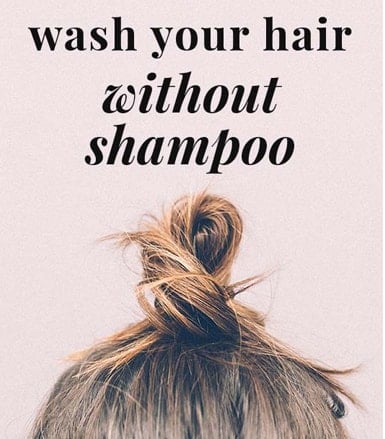Obsessions, I tell you. Each day almost, we girls get the itch to try out new shampoos, Indian or imported brands. Any reason? Because we want to pamper our tresses with the luxury of foam and fragrance.

But do you know our fetish for shampoo can strip our scalp off the sebum? So shampooing frequently does more damage than good. Which is why it is important to know how often to wash hair.
Yes, how often. Now there are many questions attached to the issue of repeated hair wash. Like for instance, does washing your hair every day make it grow faster? Is it true? Any proof?
Point is before you get under a shower at home or a hotel to unwind after a long day, it is worthwhile knowing how often you should really wash your hair.
Well, you will be glad to know the answer from a dermatologist – according to Seattle-based dermatologist Elizabeth Hughes, you should wash your hair once it’s oily and feels unclean to the touch.
I think this one is straight and convincing according to science.
However, it is also important to know what leads you to wash your hair often.
Factors That Increase The Frequency Of Hair Wash:
There are several factors that increase the number of times we need a hair wash:
1. Oily Scalp:
This is the biggest culprit because this leads us to get ‘dirty’ hair (as we think). An excessively oily scalp can leave the hair looking limp and greasy very often. Why blame just the oil, external factors such as age, sex, genetics, and environment govern how much oil our scalp is producing.
Teenagers and adults in their 20s or 30s produce more sebum as compared to children and senior citizens. As you age, the scalp tends to become drier, no matter how hard you have struggled with an oily scalp in your youth.
Comments dermatologist Elizabeth Hughes “There are some people with really fragile hair that becomes easily damaged with the act of washing. Those people might want to wash their hair every other week.”
When it comes to the theory of how often to wash hair, it is the oil factor in our scalp, which fights all rationale.
2. Hair Type:
Curly or wavy hairs do not need a daily wash as much as a head full of straight and thin hair. Though all of us wish to get straight hair thanks to the hair styling tools, they look greasy much faster since they get coated by sebum easily. Curly, thick, or wavy hair tends to look dry since the hair strands are not coated by sebum oil as easily.

Source: hairsstyles.co
Any type of hair, which needs to be, washed the least? Yeah, it is African-American hair. Over washing of hair with harsh shampoos can trigger hair loss, especially when accompanied with chemical treatments or tight-braid hairstyles.
So those of you with tight curls or textured hair should wash your hair ONLY once a week or every other week. This formula is recommended by the American Academy of Dermatology.
3. Sweat Excretion:
A sweaty workout can always mess up your hairdo. The problem with sweat is that it can spread sebum, in the process, make your hair look and feel dirty. And it can cause your hair to smell yucky. Elizabeth Hughes recommends shampooing after sweaty workouts.
To prevent this problem from occurring, shampoo the roots of your hair. When you do so, the ends of the hair will automatically get cleaned.
Says Hughes and very valid point “I see more problems with people overwashing their hair than you would think….If people didn’t rely on these detergents so much the quality of people’s skin would probably be better, especially as people get older. People in their 40s and 50s who are still washing their hair and scrubbing themselves as if they were teenagers are really damaging their skin. It takes a long time to fix that.”
I got her point. Hope you understood it too.
BTW, dandruff is a sign of over-washing of hair.
Apart from dandruff, issues like dry hair, itching, flakes are all symptoms of a dry scalp. Does that mean we should avoid washing our hair forever?
Just shampoo your hair less often. This changes the texture and appearance of hair.
Top Alternatives To Shampoo:
You must be wondering are there any better options to traditional hair washing technique. Yes, they are the following:
Dry Shampoo:
Here the powder or hairspray is not cleaning the hair. It is absorbing the excess oil on your scalp thereby preventing your hair from appearing limp and greasy. For those ladies who want to extend the time between hair washes, this definitely is your go-to product.

Source: superdrug.com
Co-Wash Products:
Any new innovation this?
No, co-washing means washing or cleansing with conditioner. In fact, brands like L’Oreal and Pantene offer products that wash and condition the hair without the use of traditional detergents.
When you are using a conditioner, you are choosing the best way of managing dry, curly, or wavy hair. Just wash your scalp as you do with a shampoo. When you are through with scrubbing, comb your hair-length with the product and let it sit for a few minutes before rinsing your hair.

Source: hercampus.com
[sc:mediad]
Use Water Only:
There are many divas who use only water for hair wash and get bouncy curls and a gorgeous mane. However, there is no such research on the benefits or side effects of only using water for hair wash. Only thing is this technique leaves out any moisturizing treatment your mane gets from a hair conditioner or hydrating shampoos.

Source: moringasource.com
Bottom Line:
Hope you now know that a shampoo is only meant to cleanse your scalp. So avoid washing your hair ends with it.
As for conditioner, those of you with dry hair should use it every time after you wash your hair.
Hope you found this article informative. Do share and circulate it in your network. And don’t forget to post your comments.
